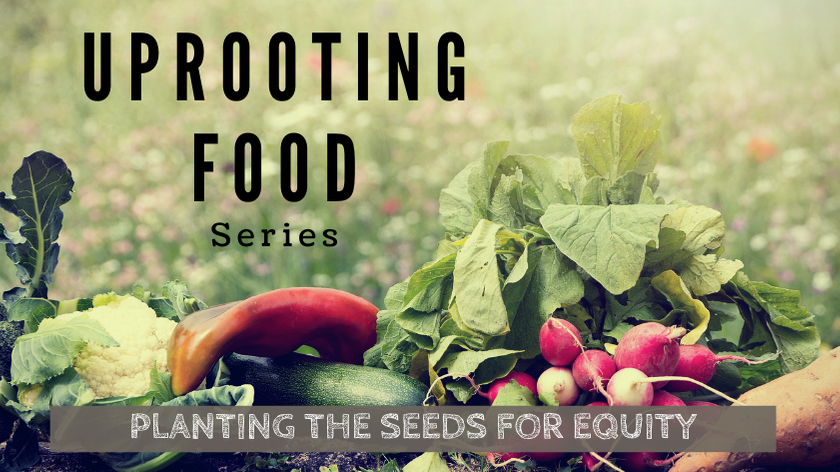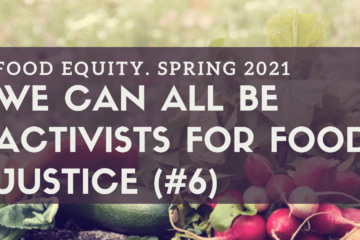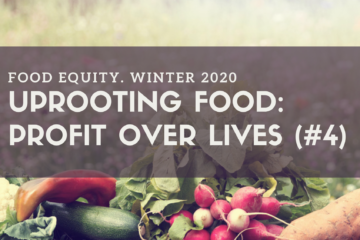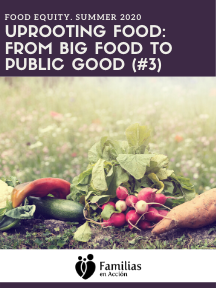
If you care about the working poor, about racial justice, and about climate change, you have to stop eating animals. Jonathan Safran Foer
This horrific pandemic has brought food to the forefront for many of us. We are rethinking the food we eat–for our individual/family health, the health of our country, and the health of our planet.
Our Ancestors Knew
Luz Calvo and Catriona Rueda Esquibel, authors of “Decolonize Your Diet” advocate a return to the fresh and healthy foods of our ancestors. For Latinx and indigenous peoples, beans are the food of our ancestors. A decolonized diet is a lifestyle that embraces ancestral food choices for our health and the health of our mother earth. A decolonized Mexican diet includes corn, beans, cactus, tomatoes, avocado, and chili peppers.
Many healthy plants and herbs, quelites, that are indigenous to Mexico, are considered weeds in the United States. Our health and the health of our mother earth is a return to our indigenous roots!
From Yesterday to Today
A Latinx vegan movement is happening across the country! The number of Vegatinos—Latinx choosing vegan or plant-based foods—is on the rise. Across the country, restaurateurs and chefs are reinvigorating familiar dishes of Mexican and Mexican American cooking for a new generation while also nudging the cuisine closer to its pre-Columbian, omnivorous heritage with a plant-heavy diet rooted in corn, beans, squash, wild greens, cactus, nuts and chiles.
The epicenter of Vegatinos in Southern California is building a strong social media presence. Latinx entrepreneur Jocelyn Ramirez is a plant-based chef, author of La Vida Verde: Plant-Based Mexican Cooking with Authentic Flavor and the force behind Todo Verde, an on line resource supporting and educating around the vegan lifestyle. Her creations show that eating vegan can be delicious and exciting: Ceviche de palmitas/Heart of Palm Ceviche and Tacos de Yaca al Pastor/Jackfruit Al Pastor Tacos.
Sales of plant-based meat products have surged during the pandemic and are projected to continue to grow into reduced demand for beef. A recent Yale survey on climate change and the American diet found that even though only 1 percent of Americans are vegan, more than half of Americans surveyed were willing to eat more plant-based meat and less beef.
For Your Healthy Tomorrow
Many Latinx vegans are motivated to prevent the chronic diseases experienced in their families and that affect Latinos at disproportionate rates. Research shows that a whole food, plant-based diet can reduce our risks for and even prevent chronic diseases such as cardiovascular disease, diabetes, obesity and autoimmune diseases. There also is growing evidence that plant-based diets are associated with benefits like lower blood pressure, cholesterol, blood sugar and reduced body weight. The health benefits can be significant!
For the Health of Our Planet
Our madre tierra is being harmed by our production and consumption of beef. The effects are local and global:
- According to the UN, the livestock sector is responsible for 18% of greenhouse emissions. That is around 40% more than the entire transportation sector-cars, trucks, trains, planes and ships combined.
- Researchers from four universities tell us that beef cattle are the most greenhouse Gas intensive food to produce. Methane gas, produced by animal waste, is one of the top three greenhouse gases contributing to global warming.
- One pound of beef requires 1,800 gallons of water to produce!
- Meat production in the U.S. and globally requires a significant amount of land, both to grow animal feed and to house animals.
- Beef production is the top driver of deforestation in the world’s tropical forests.
Eating Beans IS a Revolutionary Act
How does this compare to plant based options? Growing beans and other legumes make only one-fortieth the amount of gases that raising beef make. If Americans would eat beans instead of beef, the United States would immediately realize approximately 50 to 75 percent of our Greenhouse Gas reduction targets for the year 2020.
What difference can one person, one family, make? The Environmental Defense Fund calculates that if every meat eater in the U.S. swapped just one meal of chicken per week for a vegetarian meal the carbon savings would be equivalent to taking half a million cars off the road.
A revolution can start small—one meal, one day, one week with a gradual reduction of the animal products you eat (meat, chicken, dairy). It takes a shift in our thinking from an animal protein centric to vegetable centric diet, from roast beef to roast beets. A shift from myself today to my future self, from disease to prevention. A shift from what and how we have been fed to conscious awareness of how and why we want to feed ourselves and take care of our world.
Eating a plant -based diet is the most important contribution every one of us can make for the health of our own family and for our global family.
What’s Needed
- Patronize farmers of color through farmers markets
- Become educated about the Farmers of Color Network through www.rafiusa.org.
- Ask elected officials to support agricultural policies to expand opportunities in the plant-based foods industry for farmers of color.
*Abuelas en Acción Podcast for Our Common Good: https://abuelasenaccion.buzzsprout.com/831745/4626275-interview-with-dr-laura-anne-minkoff-zern-author-of-the-new-american-farmer-immigration-race-and-the-struggle-for-sustainability
Resources
3 Ways Pandemics Make Us Examine Our Relationship With Food and the Environment: https://nutritionstudies.org/3-ways-pandemics-make-us-examine-our-relationship-with-food-and-the-environment/
The End of Meat Is Here: https://www.nytimes.com/2020/05/21/opinion/coronavirus-meat-vegetarianism.html?referringSource=articleShare
Eating beans instead of beef would sharply reduce greenhouse gasses: https://www.sciencedaily.com/releases/2017/05/170523081954.htm#:~:text=If%20Americans%20would%20eat%20beans,targets%20for%20the%20year%202020.&text=The%20researchers%20explained%20that%20beef,beans%2C%20peas%2C%20etc.)
How a pot of beans can be a revolutionary act: decolonising your diet: https://gal-dem.com/decolonising-your-diet/#:~:text=Cooking%20a%20pot%20of%20beans,into%20the%20Mexican%2DAmerican%20community.
WHAT ARE THE BIGGEST DRIVERS OF TROPICAL DEFORESTATION?
THEY MAY NOT BE WHAT YOU THINK
Mexi-Vegan cooking is mainstream in Southern California. And it’s only getting bigger: https://www.latimes.com/food/story/2020-06-26/mexican-vegan-los-angeles-escarcega


